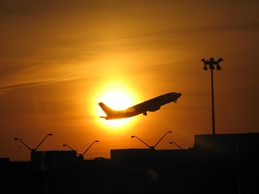
The investigation into the fatal crash of a UPS flight in the United States last year that killed both pilots has reopened a debate about regulations for flying hours for pilots, particularly the exemption of freighter pilots from tighter rules introduced over the past two years.
The investigation conducted by the US National Transportation Safety Board (NTSB) concluded that the tragic end of UPS flight 1354, which crashed on August 14 last year as it was coming down to land at Birmingham, Alabama, International Airport, was the result of an unstabilized approach.
The investigators found several factors that led to the tragic end of the A300-600 freighter and its crew. They identified failure to monitor altitude and premature descent below the minimum descent altitude, failure to properly configure the on-board flight management computer, the first officer's failure to make made required call-outs, and the captain's decision to change the approach strategy without communicating this to the first officer as causes that contributed to the incident, in addition to flight crew fatigue.
The aspect of crew fatigue became the flashpoint of a controversy between the pilots union and UPS, even before the NTSB completed its work. The authority barred both sides from further participation in the investigation in August for violating the terms of their involvement after the International Pilots Association (IPA) issued a statement giving its own analysis of the likely causes on the anniversary of the tragedy, which prompted the integrator to post a response on a website.
In its release from August 13, the IPA stated that the findings of the investigation to date confirmed its suspicion about the role that fatigue had played in the accident and called for a change in flight regulations for freighter pilots.
“On the eve of the first anniversary of the fatal crash of United Parcel Service Flight 1354, UPS pilots are calling for an end to the carve-out of allcargo airline operators from FAR Part 117, the new pilot rest and operating rules enacted by Congress,” the release stated.
This was a salvo designed to revive the bitter dispute over the exemption of freighter pilots from new pilot working rules that were implemented at the beginning of this year. In response to the crash of a commuter airline in 2009, in which 50 people were killed, the US Congress had mandated a revision of pilot flight and rest regulations. The new rules reduced the maximum work day for flight crews from previously 16 to 14 hours and imposed a 10-hour break before a pilot is permitted to fly again, including eight hours of uninterrupted sleep.
However, the authorities decided to exempt cargo pilots from the new regime, accepting operators’ argument that they would be hit disproportionately hard by the proposed rules, since most of their flying occurs during the night.
For its part, UPS has rejected suggestions that the pilots on flight 1354 had not had sufficient rest time in terms of their work schedule and insisted that the new passenger flight crew regulations would not have made any difference in this case.
“We question any idea that pilot fatigue, due to scheduling, played a role in the Birmingham accident. Both of the crew members had ample rest opportunities before the trip. The captain had been off for 10 days and the first officer had only flown two of the previous 10,” said a UPS spokesman.
“The final trip, as flown, would have complied with the new passenger regulations, had they been in effect and applicable. In the final hearing, the NTSB acknowledged that these regulations were not a factor in this case,” he added.
Stan Bernstein, president of the Regional Air Cargo Carriers Association, commented that duty rosters for regional freighter pilots were well within the timeframes set by existing regulations, with adequate rest periods, but there was no way to mandate how a pilot spends his time prior to a flight to ensure adequate rest to avoid fatigue. He pointed to an accident involving a passenger carrier where the pilot had been fatigued due to a long commute to work.
“This debate is never ending,” he added.
Based on the facts of the situation, UPS has enacted a series of safety enhancements, including pilot training, cockpit procedures and an upgraded ground proximity warning system, the spokesman stated.
By Ian Putzger
Air Freight Correspondent | Toronto



